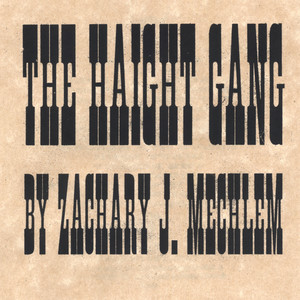
- 歌曲
- 时长
简介
On July 5th of 1873 a vicious gang of outlaws known as “The Riflemen” raided and destroyed the H8 cattle ranch near Devil’s Lake, Dakota Territory. The Riflemen stormed the ranch killing the owner, Jack Haight and his wife, Elizabeth. The gang then shot and killed five ranch hands before burning everything to the ground. The Riflemen retreated back onto the open plains leaving behind them a scene of merciless carnage. Unknowingly, they also left behind three survivors: Jack Haight’s two sons, Henry and Gage, and an Indian ranch hand named Moses. Henry, Gage, and Moses were left to bury the dead in the midst of uncertainty and despair. The Haight boys then parted ways with Moses, and left Devil’s Lake to take revenge against the outlaws who destroyed their home and their family. Unfortunately the brothers had no information to go on and they ended up searching the northern plains, in vain, for the next three years. By the summer of 1876, the Haight boys had given up trying to find the Riflemen. Instead, they found themselves in the Black Hills of Dakota during the height of the gold rush. There the Haight boys were reunited with their friend Moses in the outlaw mining-town of Deadwood. Moses had come to town bringing news concerning the Riflemen and their whereabouts. While surviving as a hunter and fur trapper in Montana Territory, he had learned a great deal about the Riflemen and had even crossed paths with the gang’s head honcho, Billy Harper, at a saloon in Mill Iron. Moses and the Haight boys vowed to track the outlaws down, at whatever cost, to seek justice for the deceased. The three cowboys made their way to the Pinebox Saloon where they sought the help of a God fearing, female gunslinger named Maggie Frye, whose knowledge of the Riflemen would prove to be worth more than the gold she was paid to join the hunt. Henry, Gage, Moses, and Maggie saddled up for a rugged journey that took them from the raucous Black Hills of Dakota down to the forsaken plains of the southwest. The dogged four, who were destined to become known as “The Haight Gang”, trailed the Riflemen all the way to New Mexico Territory where a bloody showdown stirred the dusty streets of a border town called Dirty Spur… Zachary J. Mechlem is co-founder of World Fusion trio, Mohenjo Daro and frontman for Alt-Country band, Mack West. "The Haight Gang is a unique "East meets West" combo mixing elements of roots Rock music with Indian and Arabic sounds. Mechlem shows a great talent for making music that is vivid and wildly visceral, creating appropriate moods for each "scene." The tracks with vocals will remind some of Nick Cave's work, and that kind of "Western Gothic" aesthetic is consistent throughout the record." -Mike Breen, City Beat Magazine "Listening to The Haight Gang, a concept album by Mechlem, would make anyone want to get out the old cowboy hat and toy gun to play "cowboys and Indians" with the neighborhood kids. But it might also make listeners want to get up and dance. The album is a soundtrack to a Western and has a rough and tumble Johnny Cash feel to it, but is spiced up with Indian, Arabic and Spanish influences." -Sue Bal, The News Record "Mechlem picks the banjo-mandolin with a swift deftness that brings images of a Django Reinhardt documentary immediately to mind." -Jana Marx, Et Cetera *Voted "Best Songwriter", Best of Cincinnati 2003* *Winner of the 2002 Shure Music Roots Songwriting Contest* "Shure received many outstanding entries for the 2002 Musical Roots Contest. After difficult judging and listening to over 1600 entries, Shure awarded the Grand Prize to Zachary J. Mechlem for his original song, "Dakota." "Mechlem produced the recordings and performed on most of the instruments. He additionally managed all engineering tasks as well, using an eight-track analog cassette recorder producing tape which was then mixed down directly to a CD burner. Outside of the project studio, Mechlem masterfully performs guitar, doumbek, and banjo-mandolin with Mohenjo Daro, a world fusion trio." -Gregory A. DeTogne, Shure Inc.


